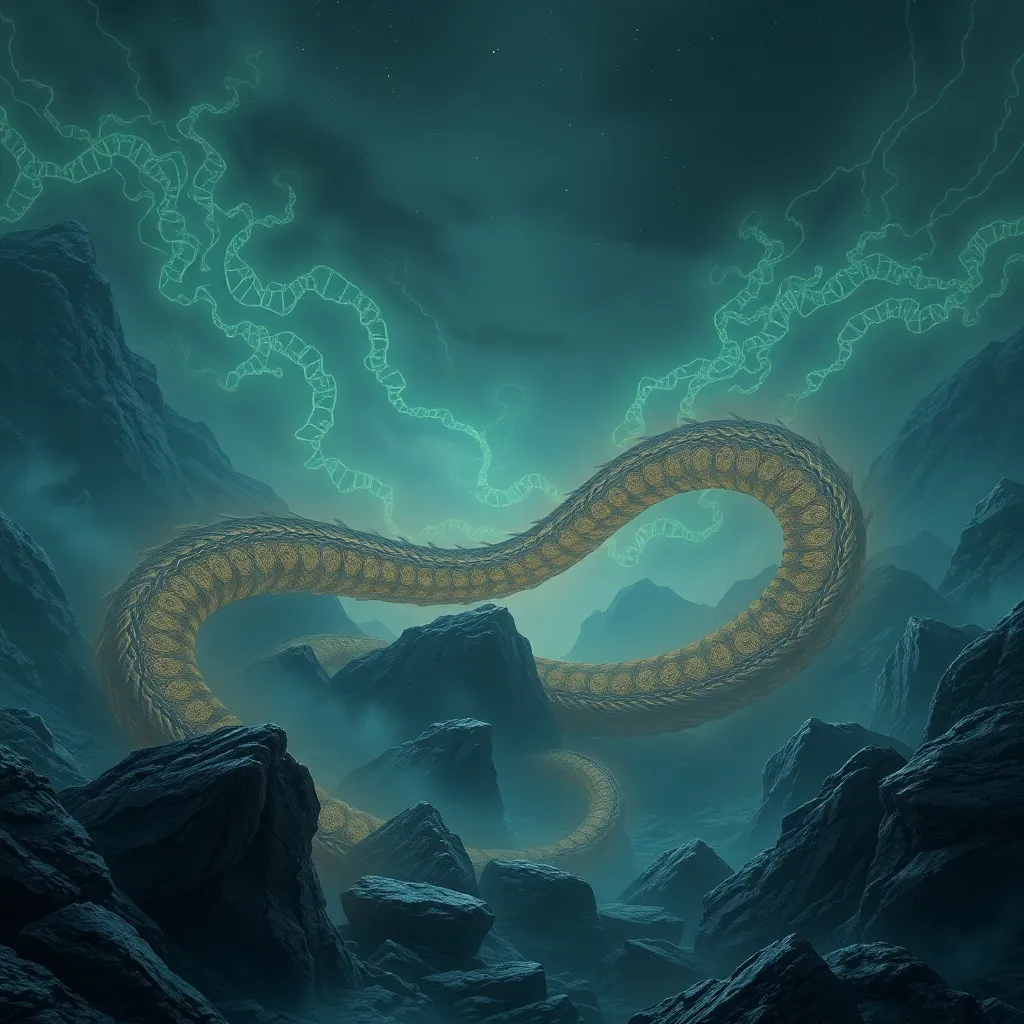From Tragedy to Triumph: Transformative Tales in Mythology
I. Introduction
The concepts of tragedy and triumph in mythology serve as powerful narratives that encapsulate the human experience. Tragedy often involves suffering, loss, and the harsh realities of life, while triumph signifies victory, enlightenment, and transformation. These themes resonate across cultures and time periods, highlighting the importance of transformative tales in shaping cultural narratives and values. This article will explore various mythological stories that illustrate the journey from tragedy to triumph, examining the lessons they impart and their relevance to contemporary society.
II. The Role of Mythology in Human Experience
Mythology functions as a mirror reflecting the range of human emotions and experiences. It encapsulates the struggles, victories, and moral dilemmas faced by individuals and societies. Myths serve several important roles:
- They offer moral and ethical guidance.
- They explore universal themes of suffering and redemption.
- They provide a framework for understanding the complexities of life.
Through these narratives, we find a shared understanding of the human condition, as they address fundamental questions about existence, purpose, and morality.
III. Prometheus: The Gift of Fire and the Cost of Defiance
The story of Prometheus is one of rebellion and sacrifice. As a Titan, Prometheus defied the gods by stealing fire and giving it to humanity, an act that symbolized enlightenment and progress. However, this act of defiance came at a terrible cost. Prometheus was punished by Zeus, who had him bound to a rock where an eagle would eat his liver daily, only for it to regenerate each night.
The tragedy of Prometheus lies in his suffering and isolation, yet his act of bringing fire to humanity represents a profound triumph. It signifies the dawn of knowledge and civilization. The enduring legacy of Prometheus teaches us about the cost of enlightenment and the importance of questioning authority for the greater good.
IV. Orpheus and Eurydice: Love, Loss, and Redemption
The tragic love story of Orpheus and Eurydice is one of the most poignant tales in mythology. Orpheus, a gifted musician, falls deeply in love with Eurydice, but their happiness is short-lived when she dies from a snake bite. Overcome with grief, Orpheus descends into the Underworld to retrieve her, enchanting Hades with his music.
Despite his efforts, Orpheus is warned not to look back at Eurydice until they have reached the surface. In his moment of doubt, he turns to look, and Eurydice vanishes forever. This tragedy illustrates the fragility of love and the consequences of human error. However, it also highlights the enduring power of love and art. Orpheus’s journey emphasizes that love can transcend even death, and his story serves as a reminder of the beauty and pain inherent in human relationships.
V. The Transformation of Hercules: From Outcast to Hero
Hercules, known for his incredible strength, had a tragic beginning as the son of Zeus, facing rejection and torment from Hera. His trials began early in life, leading to a series of catastrophic events, including the murder of his family in a fit of madness instigated by Hera. To atone for his sins, Hercules undertakes the Twelve Labors, a series of daunting tasks that test his strength and resolve.
Each labor represents a step toward redemption and heroism, transforming him from an outcast to a celebrated hero. Hercules’s journey embodies the struggle against one’s own demons and the pursuit of redemption, culminating in his ascension to Olympus, where he is finally recognized for his bravery and sacrifices.
VI. The Myth of Inanna: Descent and Rebirth
Inanna, the Sumerian goddess of love and war, undergoes a profound transformation through her descent into the Underworld. Driven by her desire to confront her sister Ereshkigal, Inanna embarks on a journey that symbolizes death and the trials of the underworld. Stripped of her powers and faced with her own mortality, Inanna’s descent is both tragic and enlightening.
The symbolism of death and rebirth is central to Inanna’s story. After enduring her trials, she is resurrected, signifying the cyclical nature of life. This myth emphasizes the triumph of feminine power and the necessity of experiencing darkness to appreciate light, reflecting the complexities of existence and the resilience of the human spirit.
VII. Odysseus: The Hero’s Journey of Suffering and Survival
The tale of Odysseus, the cunning hero of Homer’s “The Odyssey,” chronicles his arduous journey home after the Trojan War. Faced with numerous trials, including encounters with mythical creatures and divine beings, Odysseus exemplifies resilience and resourcefulness. His ten-year odyssey is marked by suffering, loss, and the constant struggle to return to his family and reclaim his kingdom.
The significance of Odysseus’s journey lies in the lessons of perseverance and cleverness in overcoming adversity. His eventual triumph in returning home and reuniting with his wife, Penelope, underscores the power of loyalty, love, and the human spirit’s ability to endure hardship.
VIII. The Tragic Fall and Redemption of King Arthur
King Arthur’s legend is one of rise, glory, and tragic fall. As a noble ruler, Arthur united the Knights of the Round Table to create a realm of peace and justice. However, his reign is marred by betrayal, particularly from his closest allies, leading to the disintegration of his kingdom. The themes of loyalty, betrayal, and the quest for unity permeate his story, highlighting the fragility of power.
Arthur’s tragic fall serves as a cautionary tale about the complexities of leadership and human relationships. Despite his demise, the legacy of King Arthur endures, symbolizing hope and the possibility of future triumph through unity and valor.
IX. Modern Interpretations of Mythological Transformations
The influence of ancient myths persists in contemporary literature and media, illustrating the timeless relevance of these transformative tales. Modern adaptations often reinterpret these stories, exploring themes of identity, resilience, and the human condition. Examples include:
- Films like “Clash of the Titans” and “Hercules” draw on mythological narratives to explore heroism and adventure.
- Literary works such as “Circe” by Madeline Miller offer new perspectives on classic myths, focusing on female empowerment.
- Television series like “American Gods” examine the intersection of myth and modernity, highlighting the enduring impact of these narratives.
Through these modern interpretations, the transformative tales in mythology continue to inspire and resonate, reminding us of the lessons learned from tragedy and the triumphs that follow.



